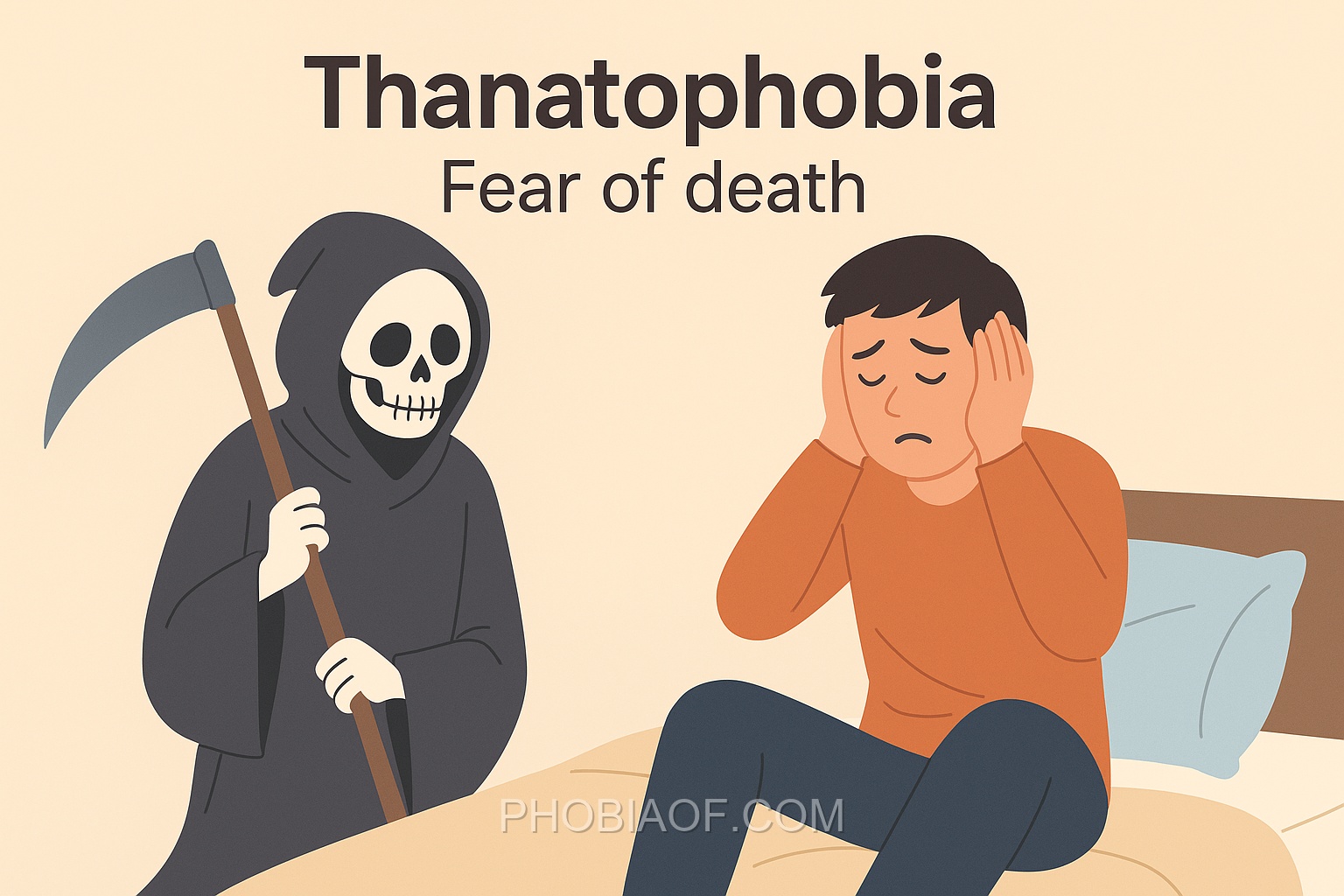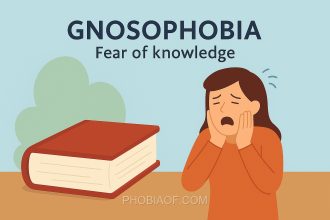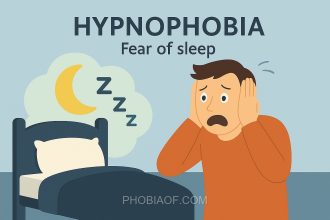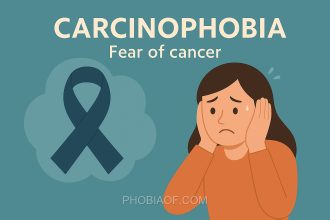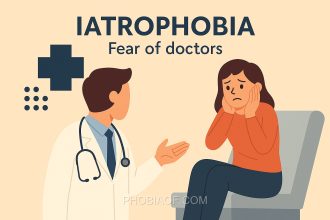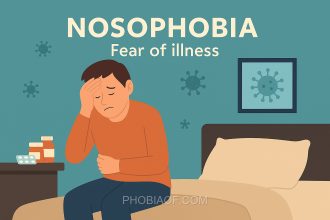Have you ever found yourself lying awake at night, gripped by an unsettling fear of what comes after life? If so, you’re not alone. This feeling is known as Thanatophobia, or the fear of death. It’s a common experience that many people face at some point in their lives.
In simple terms, Thanatophobia is an intense fear of dying or the process of death. The term originates from the Greek words “Thanatos,” meaning death, and “phobia,” meaning fear. It’s not just a fleeting thought but a deep-rooted anxiety that can significantly impact a person’s day-to-day life.
For some, this fear manifests as a constant worry about their own mortality or the death of loved ones. It might lead to avoidance behaviors, such as steering clear of anything that reminds them of death, or cause overwhelming anxiety that interferes with their daily activities.
Understanding Thanatophobia is the first step towards managing it. By acknowledging this fear and exploring its origins, individuals can begin to address the anxiety and find peace of mind. Remember, it’s completely normal to have questions and concerns about death, and seeking support can help alleviate the burden of this common human fear.
Causes of Thanatophobia
Thanatophobia, or the fear of death, can arise from various sources. Understanding these causes can help in addressing this often debilitating phobia. Below are some potential contributors to the development of thanatophobia:
- Genetic Predisposition:
Some individuals may have a genetic tendency to develop anxiety disorders, including thanatophobia. If a family member suffers from anxiety or phobias, it might increase the likelihood of experiencing similar fears.
- Traumatic Experiences:
Experiencing or witnessing traumatic events related to death, such as the loss of a loved one, can trigger thanatophobia. Such events can leave a lasting impact, making the concept of death more immediate and terrifying.
- Learned Behavior:
Thanatophobia can be a learned behavior. If someone grows up in an environment where death is frequently discussed with fear or if they witness others expressing intense fear of death, they might adopt similar fears.
- Psychological Factors:
Individuals with existing mental health conditions, such as generalized anxiety disorder or depression, may be more susceptible to developing phobias, including thanatophobia. These conditions can amplify fears and make it difficult to cope with the concept of mortality.
- Environmental Factors:
Media exposure to death-related content can also play a role. News stories, movies, and literature that focus on death and dying can influence one’s perception and increase anxiety surrounding the topic.
Interestingly, some research suggests that cultural and philosophical beliefs can also impact the development of thanatophobia. For instance, individuals who have strong religious beliefs may experience either increased fear due to concerns about the afterlife or reduced fear if their beliefs provide comfort about life after death.
Understanding these causes is crucial for both individuals experiencing thanatophobia and professionals aiming to provide effective treatment. By identifying the roots of this fear, appropriate therapeutic strategies can be developed to help individuals cope and find relief.
Symptoms of Thanatophobia
Thanatophobia, or the fear of death, can manifest as an intense and persistent fear or anxiety that can significantly impact an individual’s well-being. Recognizing the symptoms is crucial for understanding and addressing this phobia. Below are some common symptoms that individuals with thanatophobia may experience:
- Intense Fear or Anxiety: Individuals may experience overwhelming fear or anxiety at the thought of death or dying.
- Panic Attacks: Sudden episodes of intense fear accompanied by physical symptoms such as a racing heart, shortness of breath, and dizziness.
- Sweating: Excessive sweating, especially when confronted with thoughts or discussions about death.
- Rapid Heartbeat: An increased heart rate that can occur during episodes of anxiety or panic.
- Avoidance of Triggers: Deliberately avoiding situations, conversations, or media that remind them of death.
- Overwhelming Dread: A constant or recurring feeling of dread about the inevitability of death.
- Emotional Distress: Feelings of sadness, hopelessness, or depression related to thoughts of mortality.
- Sleep Disturbances: Difficulty falling or staying asleep due to intrusive thoughts about death.
- Obsessive Thoughts: Persistent, unwanted thoughts about death that are difficult to control.
For those experiencing severe thanatophobia, these symptoms can interfere with daily life, impacting relationships, work, and overall quality of life.
Treatment for Fear of Death
Thanatophobia, or the fear of death, can be a distressing experience, but it’s important to know that this phobia can be treated and managed over time. With the right approach and support, you can regain control and find peace. Below are some effective treatment options and coping strategies that can help you overcome this fear.
Therapies
- Exposure Therapy:
This therapy involves gradually and systematically exposing yourself to the concept of death in a controlled environment. By facing your fears in small, manageable steps, you can begin to reduce the anxiety associated with them. A therapist will guide you through this process, ensuring you feel safe and supported.
- Cognitive-Behavioral Therapy (CBT):
CBT is a proven technique that helps you identify and change fearful thoughts about death. By challenging irrational beliefs and replacing them with more balanced perspectives, you can reduce anxiety and develop healthier thought patterns.
- Counseling:
Talking to a professional counselor can provide a safe space to explore your fears and anxieties about death. Through this process, you’ll gain insights into your emotions and develop strategies for managing them.
Self-Help Coping Techniques
- Relaxation Exercises:
Practicing relaxation techniques such as deep breathing, progressive muscle relaxation, and guided imagery can help reduce anxiety levels and promote a sense of calm.
- Meditation:
Incorporating meditation into your daily routine can help you cultivate a more mindful approach to life and reduce the fear of death by focusing on the present moment.
- Support Groups:
Joining a support group can provide a sense of community and understanding. Sharing experiences with others who are facing similar fears can be comforting and empowering.
Medication
In severe cases of thanatophobia, medication such as anti-anxiety medications may be prescribed by a healthcare professional. However, it is generally recommended to focus on therapy and coping skills as the primary methods of treatment.
If your fear of death is interfering with your daily life, it’s crucial to seek professional help. A mental health expert can guide you on the most appropriate treatment plan for your specific needs. Remember, you are not alone in this journey, and with the right support, you can overcome your fears and lead a fulfilling life.
Conclusion
In conclusion, understanding the causes and symptoms of Thanatophobia, the fear of death, can be a powerful first step in managing this challenging phobia. By recognizing the underlying triggers and manifestations, individuals can feel more equipped to confront and address their fears. It is important to remember that you are not alone in this journey—many people experience similar fears and have successfully managed or overcome them with time and the right support.
Embracing a proactive approach to coping with Thanatophobia can lead to significant improvements in your mental well-being. Seeking professional help, such as therapy or consultation with a doctor, can provide valuable guidance and support in navigating these fears. Remember, taking the step to reach out for help is a sign of strength and a crucial part of the healing process.
Ultimately, there is hope and help available. With patience, dedication, and the right support, it is possible to manage or even overcome Thanatophobia, leading to a more peaceful and fulfilling life.
